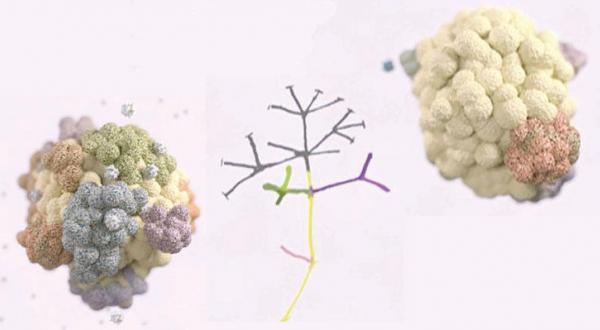London- A large-scale discovery in Britain is expected to result in revolutionary personalized treatments for patients and that would later enable them to enter trials within two years. Scientists behind the breakthrough believe they have found the “Achilles’ heel” of cancer cells.
In a video about the findings, Cancer Research UK described how immune cells could be lined up to take advantage of this weakness. “They could form a fierce cancer-fighting force with the potential to target every cancer cell in the body,” the video said. The research could even result in “a revolutionary way to treat or even cure cancer”, the video added.
The researchers found uncommon “flag” proteins that act as immune system targets and are displayed on the surface of all of tumor cells in a patient’s body. Normally they are protected from the immune system, or missed because rapidly evolving cancers present too many constantly changing targets.
Once the omnipresent proteins, or “antigens”, are isolated, effective immune system cells called T-cells can be employed to target them and destroy the cancer. Such an approach, which involves mapping the DNA in a patient’s tumor sample, would help to weaken the ability of cancers to resist therapies by changing their genetic make-up.
The work is at an early stage and so far just two of the special antigens, plus the T-cells that recognize them, have been identified in two lung cancer patients. But scientists hope to see rapid progress leading to patient trials, and are optimistic about similar targets for other cancers being found.
Professor Charles Swanton, from University College London’s Cancer Institute, a leading member of the Cancer Research UK-funded team, said: “I will be disappointed if we haven’t treated a patient within two years.”
Researchers pointed out that a tumor evolutionary tree was like a “snowflake or fingerprint”, unique to each patient. That presented a problem for clinicians and patients, because as tumors developed the tree grew new branches containing novel genetic mutations which helped the cancer resist treatment.
The new research had shown there were possible immunotherapy targets from the “trunk” of the tree that are flagged up on all of a tumor’s multiplying cells.
Prof Swanton added: “This is exciting… now we can prioritize and target tumor antigens that are present in every cell, the Achilles’ heel of these highly complex cancers.
“This is really fascinating and takes personalized medicine to its absolute limit, where each patient would have a unique, bespoke treatment,” Swanton added.
One way of making use of the discovery would be to mature T-cell-activating vaccines based on the antigens, said the researchers whose findings are reported in the journal Science. Another would be to “fish out” the small number of T-cells in tumors that are naturally primed to recognize the antigens, multiplying them in a laboratory, and returning them to the patient.
Currently ready-primed T-cells are insufficiently present in patients to make a significant difference. In samples analyzed by scientists, they only constitute up 1% to 2% of the T-cells in a tumor.
Another stumbling block to be crossed is the way cancer protects itself using proteins that are usually employed to keep the immune system under control and prevent it from running out in a disorderly fashion.
In practice, the new antigen-targeting therapies would have to be accompanied by so-called “checkpoint inhibitors” – drugs that are already being used to treat cancer patients.
Professor Peter Johnson, Cancer Research UK’s chief clinician, said: “This … research gives us vital clues about how to specifically tailor treatment for a patient using their immune system.
“It gets us closer to knowing why some patients respond to immunotherapy treatment and others don’t, and how we might select which patients will benefit the most.”
Experts are increasingly accepting the idea that the future of cancer treatment is personalized medicine, tailored to small groups of patients or individuals.
A new more effective approach to tackling cancer is desperately needed, Prof Swanton believes. He said 71 new anti-cancer drugs approved by the US Food and Drug Administration (FDA) over a period of 12 months were associated with a typical survival time of no more than two months.

